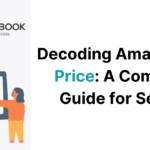Key Takeaway:
Winning top ad placements on Amazon isn’t just about bidding higher. Ad Quality Score—a combination of CTR, keyword relevance, and sales performance—plays a huge role in determining who gets seen and who doesn’t.
Disclaimer:
Amazon has never publicly revealed the exact formula behind its ad ranking algorithm. The insights in this article are based on my 6+ years of experience and managing millions in Amazon ad spend.
A Quick History of Amazon Ads
Amazon’s advertising system is often compared to the generalized second-price (GSP) auction, but in reality, it’s much more complex.
“We run auctions to determine which ads to show to customers based on their search.” – Amazon Ads Help
Even if two sellers bid the same amount on a keyword, impressions can differ drastically.
Example:
- Seller A bids $2 for “laptop” → 10,000 impressions/day
- Seller B bids $2 for the same keyword → 0 impressions/day
The difference? Quality Score.
What Is Quality Score?
Quality Score functions as an invisible evaluation system that determines the success of ads. The ability of ads to win auctions at lower bids and CPCs depends on their Quality Scores.
Key Factors That Affect Quality Score:
- Click-Through Rate (CTR) – The most important factor
- Keyword Relevance – Targeting the right keywords for your product
- IDQ Score – Verified internally by Amazon teams
- Sales Velocity – How fast your product converts
How the Amazon Ad Auction Works
Amazon calculates ad rank roughly like this:

Real-World Example
For a top-selling product with the Best Seller badge:
- My bid: $1.10 (suggested bid: $1.32–$2.20)
- Estimated weekly impressions: 1.1k–1.7k
- Actual impressions: ~4.7k
- Top-of-Search Impression Share: 8.43%
How to Improve Your Ad’s Quality Score
- Focus on Keywords Individually
- Quality Score is calculated at the keyword level.
- For new products, start with long-tail keywords like “handheld rechargeable flashlight for kids.”
- These keywords usually have lower competition, higher CTR, and better conversion rates.
- Quality Score is calculated at the keyword level.
- Prioritize CTR and Conversion Rate (CR) for New Products
- Don’t obsess over ACOS initially. Building a strong CTR history is more valuable in the long run.
- Don’t obsess over ACOS initially. Building a strong CTR history is more valuable in the long run.
- Invest in Ads During Deal Periods
- Lightning Deals or 7-Day Deals may reduce short-term profit but boost CTR significantly.
- Higher CTR during promotions helps lower future CPC and improves Quality Score.
- Lightning Deals or 7-Day Deals may reduce short-term profit but boost CTR significantly.
Conclusion
Winning Amazon ad placements is not just about bidding higher—it’s about building a high-quality, relevant, and converting ad. By focusing on CTR, keyword relevance, and sales velocity, even lower bids can deliver top-of-search impressions, better ROI, and sustainable growth for your products.


